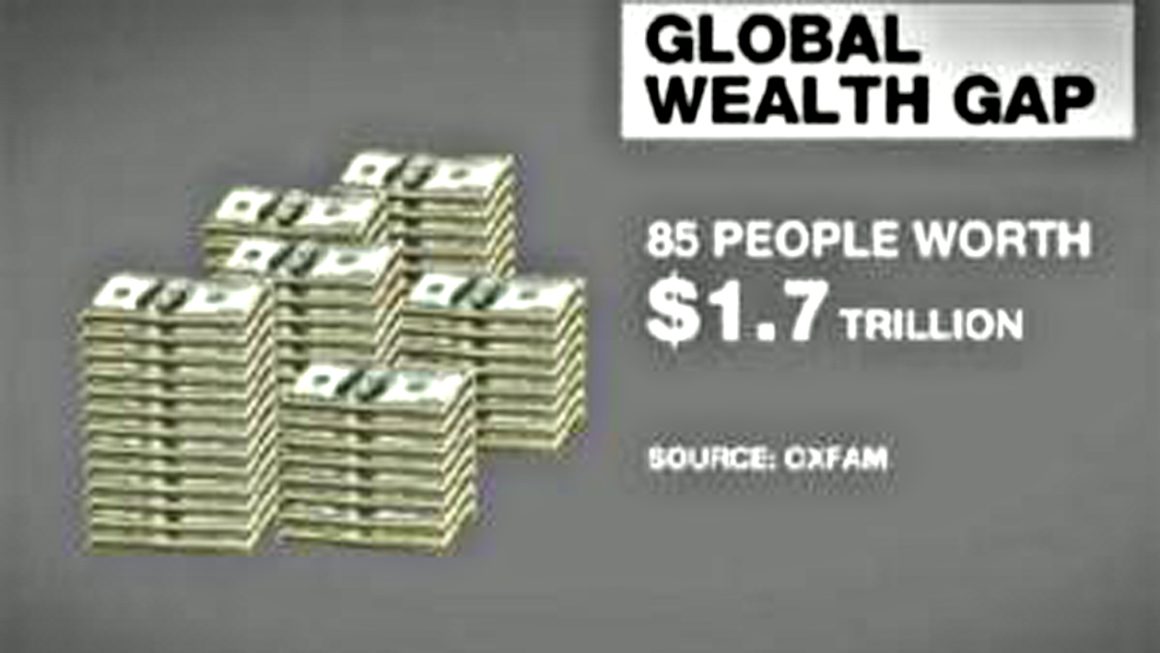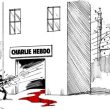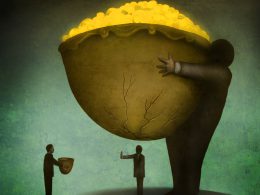The Oxfam report on global wealth distribution which has been published this month exposes the massive wealth inequality which exists today, and the poverty which the vast majority of the world’s population lives in.
The 1%
The 1%, the richest individuals in the world, now own 48% of the world’s wealth. This has increased from a 44% share over the course of the economic crisis. If the current trend continues, in two years time the 1% will own 52% of the wealth.
In 2010, in the teeth of the economic crisis and the imposition of austerity across Europe and America, the 1% began to substantially increase their wealth while the combined wealth of the 99% began to decrease. That the imposition of austerity was nothing more than a transfer of wealth from the working class to the elite to bail out their financial system is borne out by the figures.
There are 1,645 billionaires globally. In 2010, 388 of these had the same wealth as the bottom 50% of the world’s population, since then we have seen the concentrated growth of wealth in the hands of a smaller and smaller group, so that now just 80 people hold the same wealth as the bottom 50%. Between 2010 and 2014, according to the Forbes Rich-List, these 80 people increased their wealth from $1.3 trillion to $1.9 trillion. This is an increase of $600 billion, or nearly a 50% increase of their total wealth. These 80 people own the same amount of wealth as half the world’s population.
The 1% uses their wealth to influence the decisions of governments and to buy politicians to protect their own interests. Two of the major industries from which the 1% derives their wealth are finance and pharmaceuticals. In the US in 2013 finance industries spent more than $400m on lobbying, in 2012 during the election campaigns they ‘donated’ $571m to the campaigns. Meanwhile, Big Pharma spent $487m on lobbying and $260m in political donations. In the EU, the financial industry spent $150m on lobbying while big pharma spent $50m.
The 99% and global poverty
While the division between the 99% and the 1% can contrast the massive wealth inequality which exists between the super-rich and the rest of us, within the 99% there are major divisions of wealth and poverty as well.
The average wealth of one of the 1% is $2.7m; this will mean that within the 99% there will be included people who are extremely wealthy but not rich enough to be part of the 1% club. The bottom 80% of the global population own just 5.5% of the world’s wealth or $3,851 each, this is 1/700th of the average wealth of the richest 1%.
Socialist Change
The fact that by 2016, 1% of the world’s population will own more than half of the wealth in the world is an indictment of the greed of the ruling class and the capitalist system. The power of the 1% to shape the globe through their wealth and the capitalist system itself which breeds such inequality must be challenged by the bottom 80% – the working class, the real creators of wealth in society.
Only through a movement of the majority in the struggle for socialism can the rule of the 1% be challenged. A socialist alternative means taking the wealth an resources in society – and control of the economy – out of the hands of the 1% and into public ownership, under the democratic control. Only in this way can an economic plan of production, based on the needs of the majority be created, which could raise the living standards of people globally, ending poverty and inequality.












